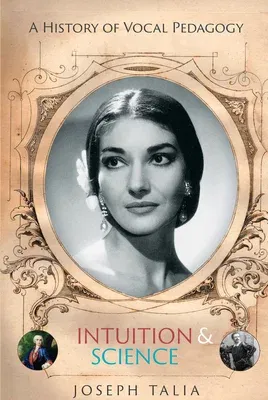Beginning in 1564, with the first physiological treatise of Giovanni
Camillo Maffei and ending with the remarkable development of solo
singing, the Italian dictum 'chi sa respirare e pronunciare sa cantare'
(He who knows how to breathe and pronounce knows how to sing) has been
transformed by science into the most sophisticated and complete vocal
paradigm in vocal history. In this ground-breaking work, noted tenor,
teacher, researcher, and operatic director, Joseph Talia, takes us on an
inspiring journey through 450 years of history tracing such important
topics as the development of voice production and vocal science, the
transition from the sostegno system of breath management to the appoggio
system, the debate on vocal registers as a purely a glottal phenomenon,
and the importance of vocal elements such as posture, messa di voce,
portamento, trills, and many other coloratura techniques and ornaments.
All of these are analyzed through the overarching framework of human
emotions and impeccable aesthetic appeal, remembering always Tosi's
dictum that 'the heart is the greatest of teachers'. Within these pages
you will find a wealth of knowledge accumulated by the great singing
masters of the past such as Bernacchi, Porpora, Tosi, Mancini, the
Garcías, the Lampertis, and the Marchesis, as well as the tremendous and
assiduous work performed by vocal scientists throughout history by such
scientists as Janwillem van den Berg, Vennard, Hirano, Fant, Ingo Titze,
and Sundberg to name just a few. "A History of Vocal Pedagogy" is a
vital resource for voice teachers, vocal researchers, serious vocal
students, and vocal connoisseurs.

